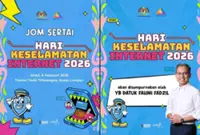Researchers have developed a new tool for measuring digital media overuse, whatever the new emerging technologies. — AFP Relaxnews
There are currently tests for measuring Internet addiction, as well as functions for tracking time spent on particular social networks. However, US researchers have gone one step further by developing a new tool capable of measuring addiction to digital media, whatever new technologies may emerge, revealing that students aren’t as addicted as you might think.
“We wanted to create a tool that was immediately useful in the clinic and lab, that reflects current understandings about how digital addiction works, that wouldn’t go obsolete once the next big tech change hits,” said Daniel Hipp, of Binghamton University, who co-led the research, quoted in a news release. The idea is to anticipate future changes in the digital world, and to help users gauge their dependence on these platforms.





